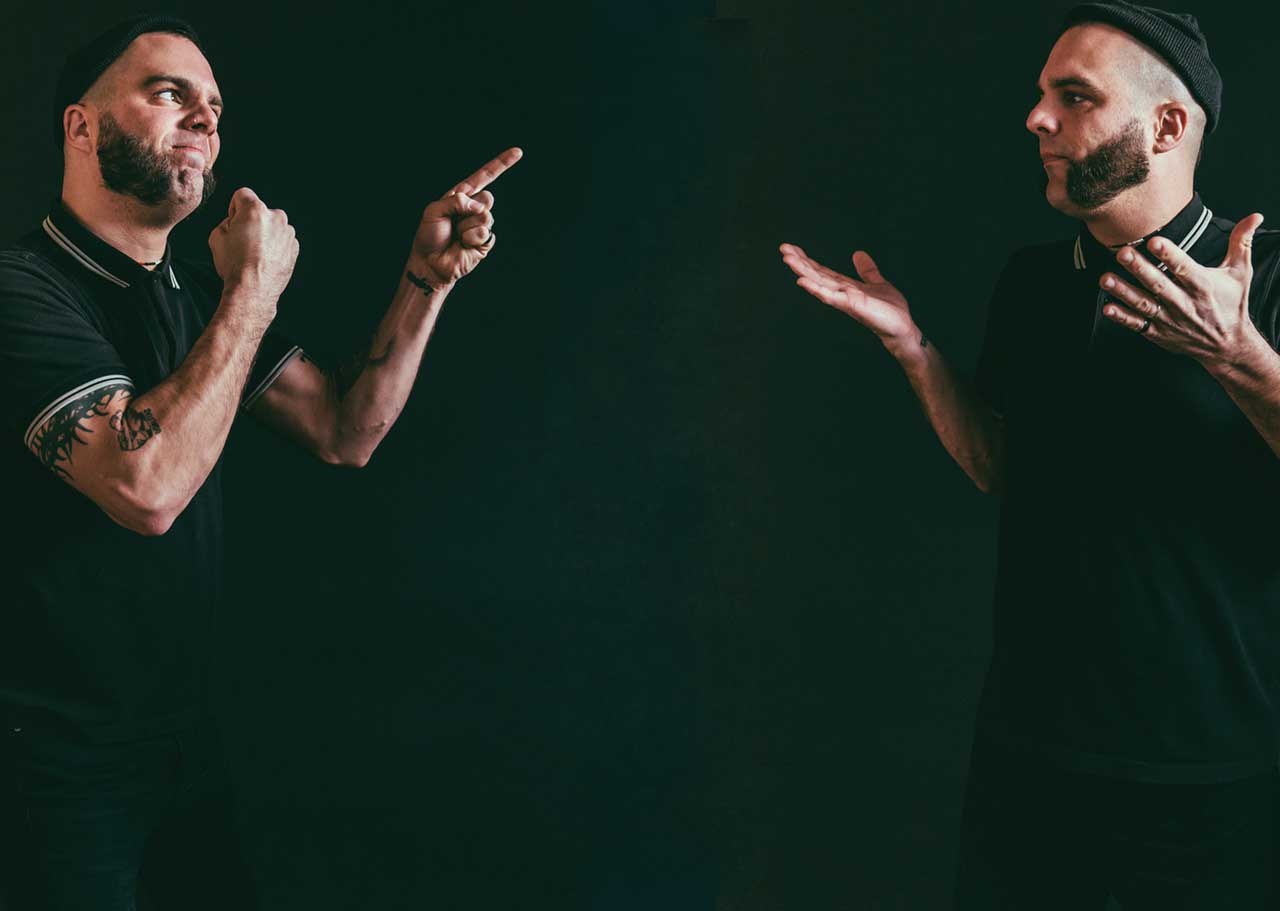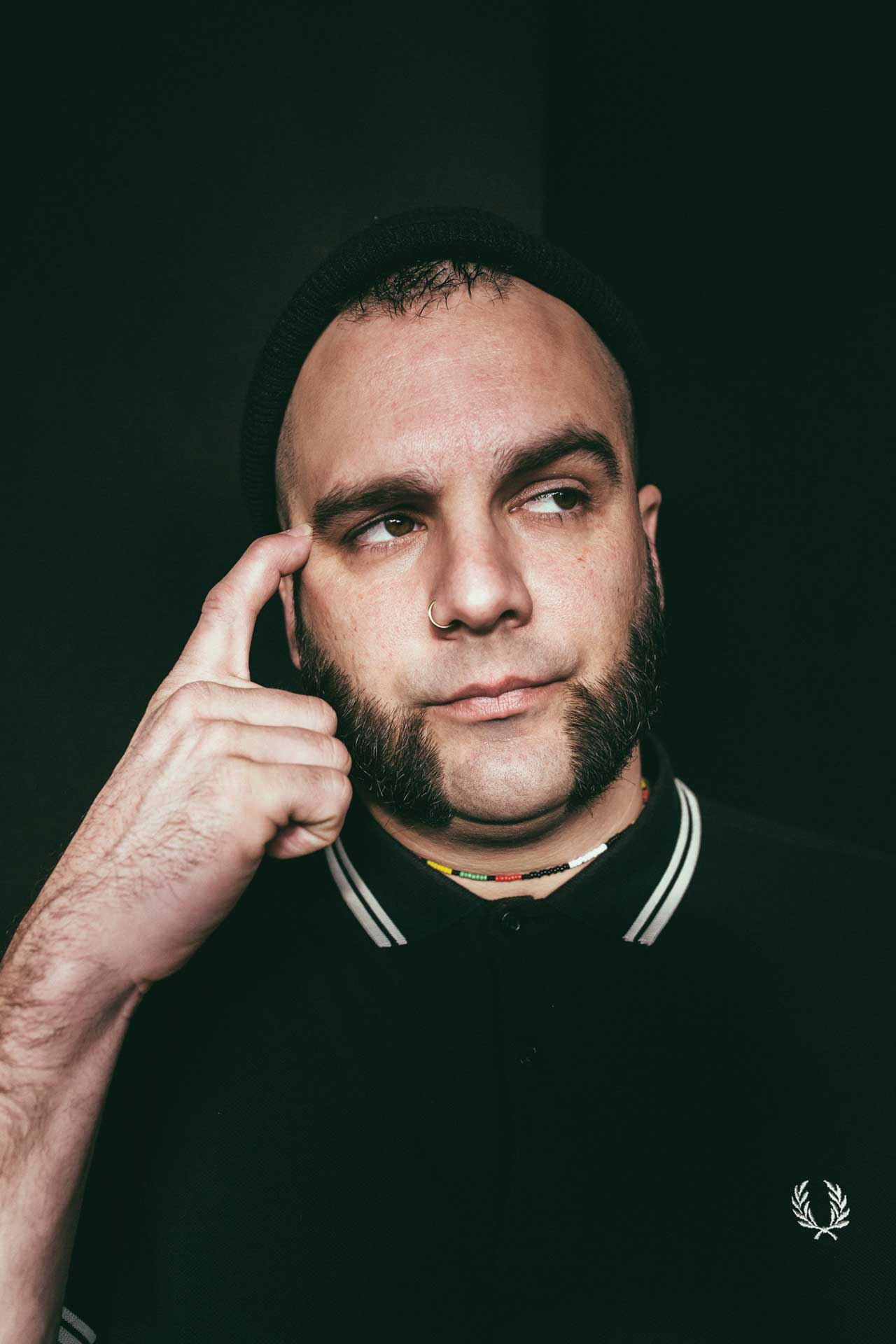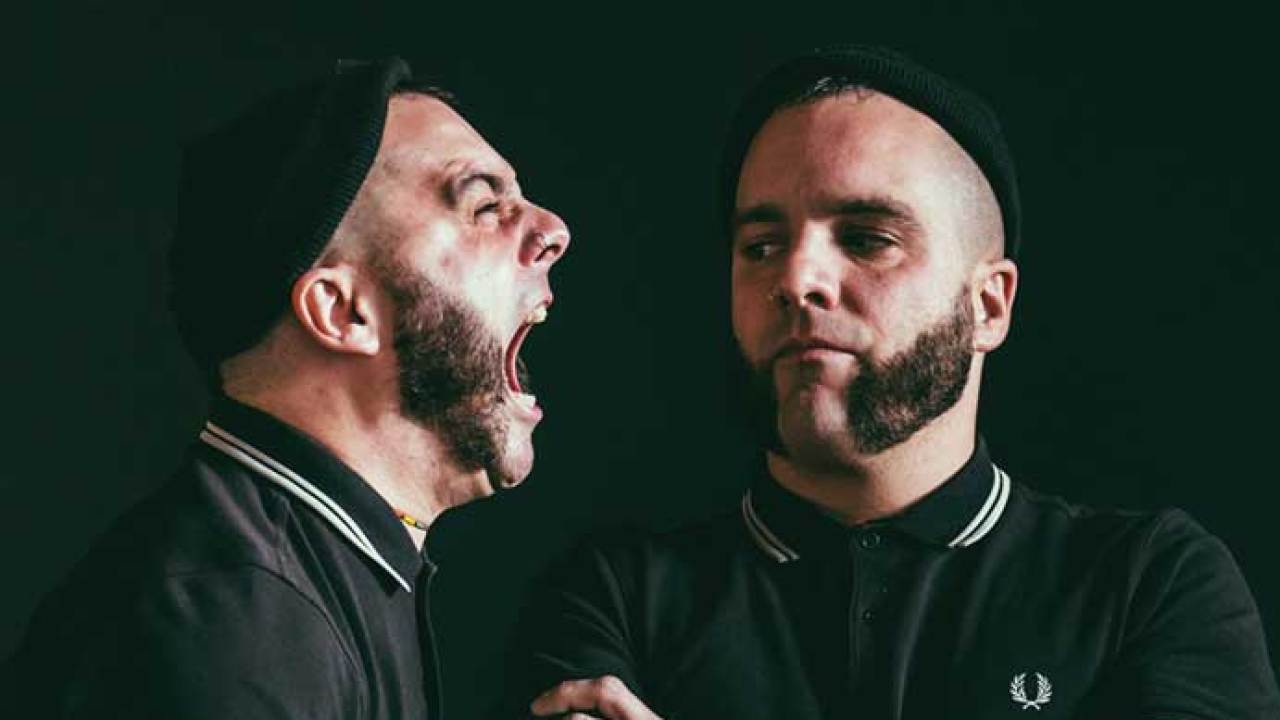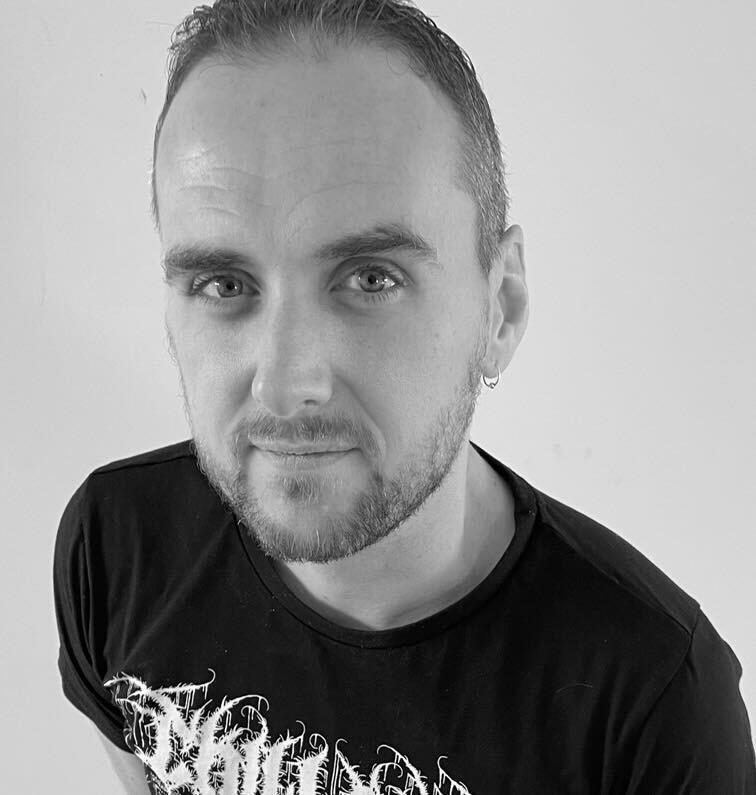It’s hard to think of Jesse Leach being anything other than Captain PMA. The reinstated Killswitch Engage frontman is currently entering his fourth year of being back in the fold after spending a decade in the wilderness, and anyone who has met him in that time will have a ’barrow-load of superlatives ready to roll out in honour of the man. He’s been a shining, unerring beam of positive, righteous light since he made his return to the band in early 2012, reinvigorating the Massachusetts heavyweights and, as he was happy to tell anyone listening, completing a personal journey to self-redemption that saw him make what he described as the “best decision” of his life. When he wasn’t waxing lyrical on how awesome it was getting back to doing what he does best, you could find him enthusiastically frothing over his love of literature, ska and reggae music or his beloved skinhead culture. His world, it seemed, couldn’t be any brighter. And yet, as he got to work on the second new Killswitch album since his return, what should have put a delicious cherry on a triple-tier cake of awesomeness instead led him to the very brink of his own sanity.
“I’m still reeling,” he admits wearily. “Even just this past week, there have been days where I just can’t get out of bed. I’m depressed. I’m still figuring it all out.”
To understand how Jesse has found turbulence within the midst of the most successful years of his career, you only need look at the, to put it delicately, unusual circumstances of his upbringing and the path he took thereafter. Born in the small, suburban city of Winter Haven, Florida as the youngest of two boys to a nurse mother and an “ex-hippy/ biker-turned-minister” father (and joined 15 years later by a little sister), Jesse spent his early years in a constant state of flux, as his family were regularly uprooted and moved around the States to satisfy the spiritual callings of Papa Leach, who would hear what he’d believe to be the voice of God, instructing him to go and find work and spread the Holy Word wherever possible. As the singer explains, his father’s beliefs not only saw them change their environment on a regular basis (“if he decided we had to get up and go somewhere, we’d go!”), but heavily influenced Jesse’s upbringing.
“He was seeking God,” Jesse muses, “and I lived under a thumb of religion. My parents are great people, but my childhood was definitely very strict. I couldn’t listen to non-Christian music; I used to have to sneak my Run DMC and Iron Maiden tapes into the house. We couldn’t swear. We were like the Flanders kids growing up.”
Despite an upbringing that might seem like kryptonite to the organic growth of any burgeoning metal fan, Jesse goes to great lengths to emphasise that his parents are both “very caring, loving, giving people”, and it was ultimately his family’s endless travels that lead to him discovering heavy music – in the most roundabout way possible.
“We lived in Philadelphia for a while,” he recalls. “I was exposed to a lot of black culture, and that’s when I started getting into breakdancing and hip hop, which was huge when I was growing up in the city. That lead to me getting into Run DMC, which led to Public Enemy, and then Anthrax when Bring The Noise happened. And that’s how I got into heavy music!”
There are days where I can’t get out of bed
Eventually, Jesse’s travels would see him settle in Providence, Rhode Island for the majority of his latter school years – a habitat which led him to the passion and chaos of punk music and a local scene that, for the first time in his life, gave him a real sense of belonging and purpose.
“That was a turning point,” he enthuses. “My first concert – the first real, small-club show that I went to – was a band called Kilgore. I was 14 years old at the time, I got into my first pit, and I was just like, ‘This whole thing, whatever this is here, this is it.’ So from about 14 to 18, I lived in those clubs. I was there three or four times a week. I’d go to skinhead shows, death metal shows, goth shows… I just fell in love with underground music. My education began there.”
With the blessing of his parents, who had “loosened up, realised [he] had a passion and supported it”, Jesse started his first band, and while those first couple of years in the punk scene were vital in helping him exorcise some long-bottled frustrations, they also prompted him to dabble in the scene’s more dangerous traits.
“Back when I was younger, my lyrics were definitely not how they are now,” he explains with a mild chuckle. “I would put curse words in as much as possible for shock value. I was angry and upset with the world, and all the repressed feelings I had from being a sheltered kid came out, and I became a very angry punk rocker. I’d also take any drug you’d put in front of me and became a total maniac for a little while.”

Eventually, a rather manic, drug-fuelled plea for help directed at his parents saw Jesse kick his newly acquired habits before they had a chance to mutate into something more serious.
“I had a really, really bad acid trip,” he reveals. “I’d taken 16 hits of acid and lost my mind. I took my clothes off, crawled into bed with my parents and asked them to help me. I thought I was gonna die!”
Naturally, they reacted in the only way they knew how.
“My dad’s response was to drag me to church,” Jesse adds. “I sat in church and wept in the pews. So I swore off everything for a little while. I just sobered up from the drugs, but shortly after that I discovered beer!”
“It was the touring lifestyle, people recognising me – which I hated back then – and dealing with depression and anxiety and not having the language for it,” recalls the frontman today. “I was in a really dark place.”
While Killswitch would, of course, quickly recover, enlisting the services of one Howard Jones and going on to become one of the most successful metal bands of the 00s, Jesse spent his years on the sidelines working multiple jobs trying to keep his head above water. While Killswitch were playing to thousands of fans around the world, you could find Jesse working shifts as (deep breaths) a baker, a wood-chopper, an antique window refurbisher (don’t ask), a valet and a barman. He’d dip his toes back in music, with stints in bluesy rock project Seemless and metalcore crew The Empire Shall Fall satisfying his occasional creative urges, but it wasn’t until a chance reunion with his former Killswitch brother Adam D that Jesse was put firmly back on the metal map.
“Writing the Times Of Grace record [2011’s The Hymn Of A Broken Man] was one of the best things that ever happened to me,” says Jesse of the collaboration between himself and Adam – who had been writing non-Killswitch material while laid out with a back injury. “That was a project that helped me through another really dark time, when I was borderline suicidal.”
While the duo would play some shows together in honour of that Times Of Grace record, eventually Adam’s day job came calling come the tail end of 2011, and it looked like Jesse was destined to sink back into the shadows once more. That is, until Howard Jones suddenly and shockingly left the Killswitch fold soon after, and a door that had long been shut suddenly swung back open for the first time in a decade.
“They originally asked me to come back, and I turned it down,” reveals Jesse today. “But then I saw that they were gonna do auditions, and I was like, ‘These guys are gonna have a third singer? That sounds really crappy, I’m gonna at least give this a shot.’ I called their management and said, ‘Hey, put me on the list.’”
What happened next was little short of magical. Jesse officially returned to Killswitch and played some ecstatically received shows soon after, and the resulting album – 2013’s masterful Disarm The Descent – was widely regarded as the band’s finest work since their generation-defining The End Of Heartache.
“It was definitely a trial by fire,” laughs Jesse of being thrown right back onto the frontlines. “It was tough, but it was also the time of my life.”
This has to beg the question that brings us back to the Jesse Leach of 2016: How did the guy walking on sunshine three years back find himself picking his brain off the floor and struggling to get out of bed in the morning? The answer lies in the rather gruelling mental process Jesse inflicted upon himself when it came to writing the new Killswitch album.

“I don’t wanna be a broken record with my lyrics,” explains the frontman. “I don’t wanna just be ‘motivational speaker Jesse’. I’m tired of that shit. So, I went on vision quests. I’d go into the woods by myself, I’d spend days up in the mountains. I dug deep within my psyche and wrote whatever came out – no filters, no ‘Oh, what’s my listener gonna think about this?’ I allowed myself to go a little… darker.”
Such strenuous mental acrobatics took the singer to a space even he had never visited before, and the results are stamped all over Incarnate. Killswitch’s seventh studio album sees the singer dig into a variety of difficult, hard-hitting subjects, from domestic abuse on the gruelling Quiet Distress to police brutality on The Great Deceit, but it is arguably his vocals themselves that really steal the show. Flipping from guttural, inhuman screams to haunting melodies with the flick of a switch, Jesse not only outdoes any of his previous work in technical terms, but reasserts himself as one of the finest singers of his generation. The pure, unadulterated emotion that seeps through tracks like Just Let Go and the rallying We Carry On is almost hard to listen to at times – and it’s certainly taken its toll.
If this music kills me, then that’s how I wanna die
“I’m still getting my footing after doing this record,” Jesse reasserts with a sigh. “I put so much into it that I’m wondering what’s left. I’m not trying to sound dramatic, I truly mean that, and I’m just trying to figure out who I am right now. That’s how much I’ve put into this record. I’m actually really proud that this record took that much out of me, and I think that, hopefully without sounding pretentious, is what creates true art. It isn’t just something that’s fluffy to make money, and we’re at that point in our career where we’ve got to put out great stuff, or what’s the point? We’re gonna be that band playing that one song at the festival, and I don’t ever wanna be that band.”
With Incarnate in their pocket, the chances of Killswitch becoming “that band” are very slim indeed. But, with Jesse admitting to being worn out by this latest, emotion-draining chapter in his career, the question has to be asked: is he really up for the challenge of moving beyond his second Killswitch honeymoon period? Or might we see a tired, world-weary Jesse abandon the fold once again somewhere down the road? The answer comes tumbling out of his mouth before we’ve even finished the question, and suddenly, that light, that righteous fire, is burning in Jesse Leach once again.
“Music is therapy, and performing it gives you a feeling like no other,” he stresses. “No matter where I am, no matter what goes on in my life, as soon as I hit that stage, it just washes away. There’s nothing like it.” He pauses for a moment, as his 15-year journey with this most game-changing of bands settles into focus. “And I put as much as I possibly can into my performance – so much so that I leave a little bit of myself on that stage. It’s so important. If you’re not living with passion, what’s the point? And that’s the way I look at it: if this music eventually kills me, I get cancer in my throat or cirrhosis of the liver, whatever’s the by-product of this lifestyle, then that’s the way I wanna die. I don’t wanna die old, like, ‘When I was younger…’ Nah. I’d rather just be dead before that happens.”
“He’s An Emotional Little Man”
Bandmate, producer and friend Adam D reveals what it’s like to work with Jesse
**How aware of Jesse’s headspace were you guys when the album was being written?
**“He’s always very open and honest with me when we are working together. I don’t know if that’s because we’re friends, but, even as a producer, it’s very important to me to know just what Jesse is bringing to us. If he ever needs any help finishing the lyrics, then I really want to get into that headspace and really understand where he’s coming from. So, yeah, he wasn’t holding anything back from us.”
**Are you glad you can give him a platform to express those feelings?
**“Oh sure. I mean, Jesse’s an emotional little man, and it’s good to have an emotional little man as your singer, because he has a lot of things to say. He’s always got a lot on his mind, he’s a very thoughtful person, an introspective person, and that’s why he’s one of my favourite lyricists. Because what he brings to the table is so personal.”
**How’s the working dynamic between you two?
**“I think it’s a great dynamic – very honest and supportive. It’s always a great thing to feel that he trusts me to help make things better, and I trust him to bring some original thoughts and ideas to us, rather than the usual ‘I’m gonna kill you!’ metal lyrics.”
Incarnate will be out on March 11 via Roadrunner. KSE play Download on June 10

